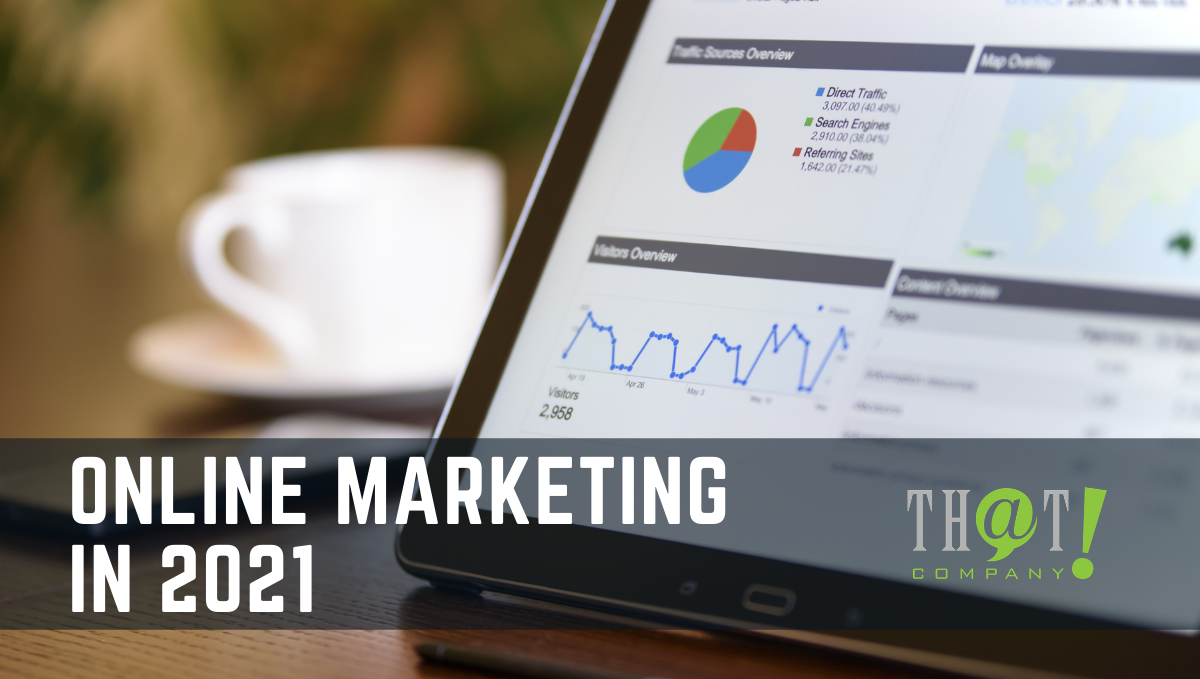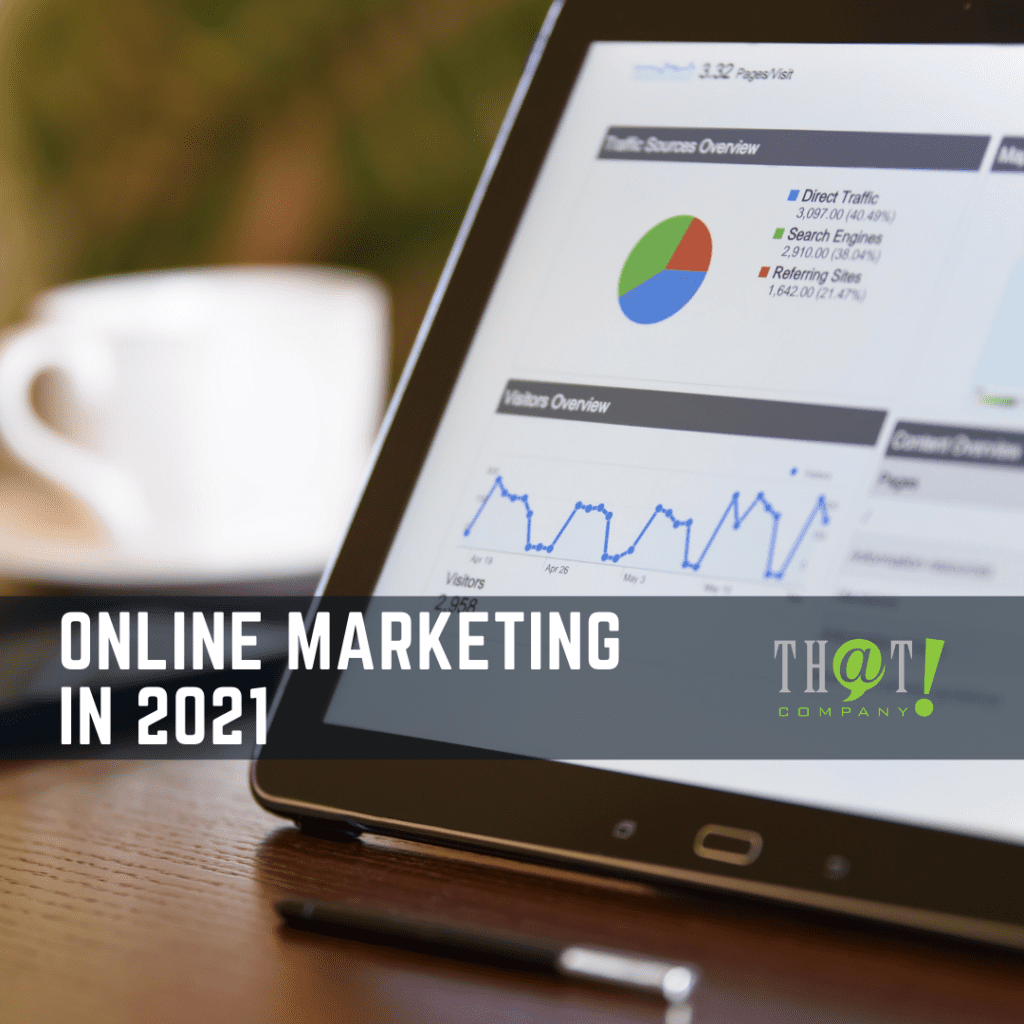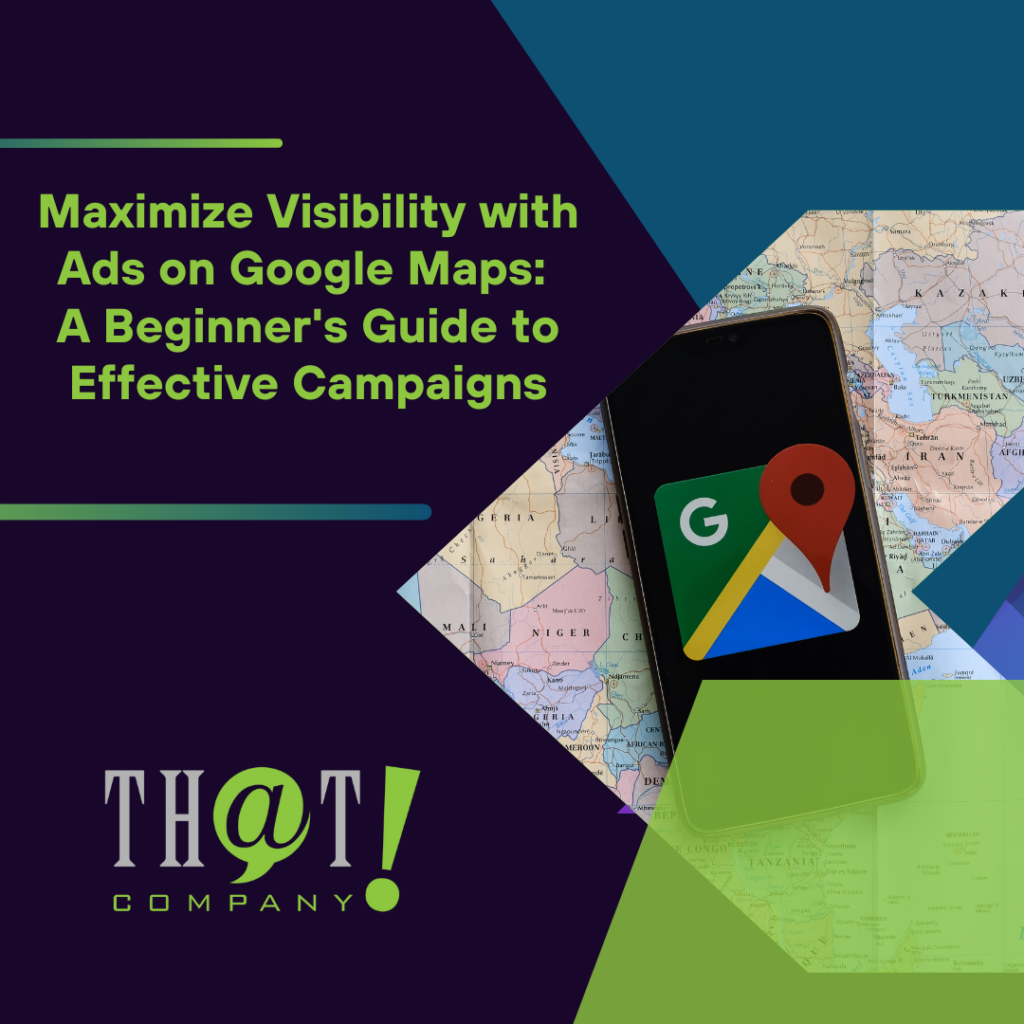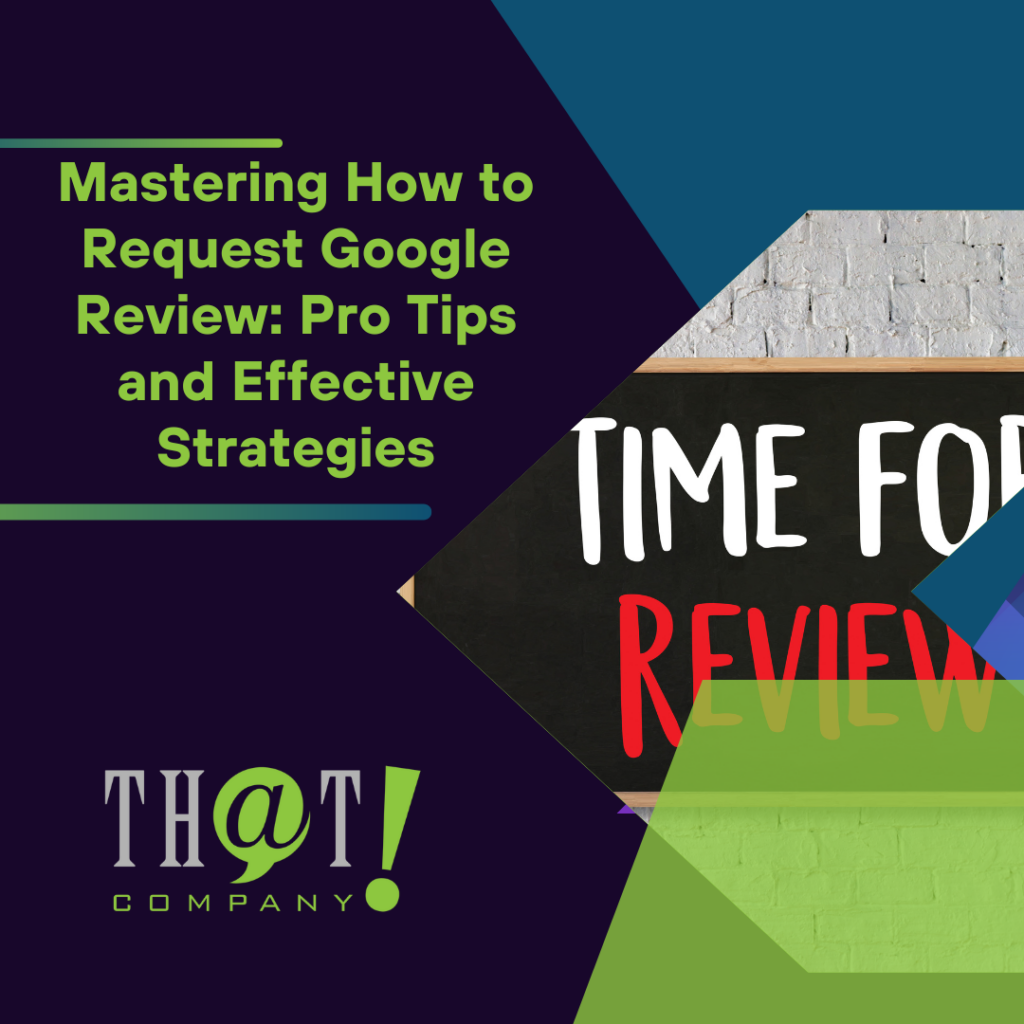
This last year has been a crazy ride in more ways than most can count. Due to the current state of the world, the internet which was already growing at an incredible yearly rate had yet another boost, as staying at home more, working, relaxing, and shopping online became not only the norm but often required. This, of course, has not gone unnoticed by the already unstoppable tech giants such as Google ( alphabet ) and Facebook as well as many others and became a very opportunistic time for what I consider to be somewhat drastic changes.
With the huge expansion of online shopping two of the internet’s largest platforms, Google and Facebook have yet again changed up the direction they are trying to push their platforms, and with the huge explosion of online sales, they are expecting that most will just go along for the ride. So what is it that they are pushing? Well, they say they want it all to be “easy”, and automated, and more relevant. This sounds great on the surface, but as often is said you can’t fit a square peg into a round hole.
Google is telling you that they can set your campaigns to an almost “set and forget” type of automation where they will just work. That’s the thing though because Google says doesn’t make it true, you don’t have to follow their advice and keep a little of the power for yourself. Think of it this way, if they want you to trust them they are going to need to have you perform well right? Well, if you’re in a market with 50 other companies all being told they are going to perform well, someone has to be the best performer and someone has to be the worst. So how do they decide who will be first and who will be last?
Pay to Play in Online Marketing
The money would be the answer your looking for. Who is willing to invest the most and for the longest. Case in point, I’ve seen many Google smart shopping campaigns start strong only to decrease in performance as time went on, and really for no reason or apparent changes in the market that would cause the fall off. It’s almost as if Google gave them their time in the sun to entice them and then replaced them once they decided that they needed to give someone else a chance to shine.
I have actually seen this a lot more than I care to admit. I’m not saying that I haven’t seen smart or automated shopping work and work well. I’ve just seen it fail as many times as I’ve seen it succeed. This of course depends on a lot of different factors, some within the seller’s control and some not. So what do you do? Is the “old way” still relevant? Of course, it is. Going into 2021 you just need to understand what Google is doing and then armed with that knowledge decide if it works for you. So what are we really looking at here?
Google 2021, What to Expect?
 Google ads have been moving in new directions and moving quickly over the last few years. It has not been uncommon to overhear colleagues discussing how Google is trying to take the advertising out of advertising and make everything a cookie-cutter approach whose success or lack thereof will only be determined by themselves. Because of this, it has left a fair bit of uncertainty in the marketing space as you just don’t know what they are going to try next. Below I’m going to try and answer some of these questions (hopefully).
Google ads have been moving in new directions and moving quickly over the last few years. It has not been uncommon to overhear colleagues discussing how Google is trying to take the advertising out of advertising and make everything a cookie-cutter approach whose success or lack thereof will only be determined by themselves. Because of this, it has left a fair bit of uncertainty in the marketing space as you just don’t know what they are going to try next. Below I’m going to try and answer some of these questions (hopefully).
First and foremost, As I mentioned earlier Google is trying to make campaigns “smart.” So what is a smart campaign?
Smart campaigns are used to automatically show ads to locals in your area to drive website visits, online sales, and offline store visits. It’s a great, cheap way to bring in more sales. This is accomplished by using Smart Bidding (a subset of automated bid strategies that uses machine learning to optimize for conversions or conversion value in each auction—a feature known as “auction-time bidding”.
So does it work? Well yes and no as stated above. While I think it’s fine in some situations, the truth is that you can’t always depend on it and you have to know when to jump ship and do things the old-fashioned way with manual bidding in manually run campaigns.
Some of the other types of campaigns currently being pushed by Google are:
- Target CPA – campaigns that target leads based on your set cost per acquisition amount. This can be effective if you’re up on negative sweeps.
- Target ROA’s ( return on ad spend ) – campaigns that are based around a dollar-for-dollar type of automation, and are meant to give you the very best return for your investment.
- Maximize Conversion – campaigns that do exactly that, maximize the number of conversions you receive based on your ad spend, whether they be things like phone calls or form fills.
Smart Bidding uses the above-mentioned campaign types and applies different options through machine learning to accomplish the primary campaign goal by using different sources such as locations, time, and language. It also uses re-marketing and ad variations which Google is basically left to determine your chance of success. This again does work sometimes, but not always. And at least not always to the greatest success you could have.
What I really want to impress here is that Google is looking to make things easier on the surface, but when it comes down to it, sometimes the best way to do things is manually and having the granular control that Google seems adamant on taking away ( Modified Broad Keywords, anyone .)
Another area that Google has really been pushing into is targeting an audience much in the same way that Facebook has been for quite some time. Looking at a few of the items mentioned above, Audiences really stands out as over the last few years I’ve really seen Google pushing towards them heavily as the main source for their platform. With that said, I’ll list the primary audiences below that you can expect to be offered or dealing with in 2021.
- Affinity audiences – based on browsing behaviors and interest groups. These are not as robust as one would like but Google has expanded them quite a bit and is closing the gap compared to Facebook audiences of a similar nature.
- In-Marketing audiences – are based around audiences that are actively shopping in your market currently based on previous searches. While I have been experimenting with these for some time and contrary to what I read on the internet, I’ve expected more success from them. Personally, I think it’s more that Google realizes they can use large audiences to push mass amounts of clicks whether they convert or not remains to be seen. Again, not something I’m opposed to using or even suggesting as an option once an account gets moving. But definitely not something that I’d be comfortable putting all my eggs into one basket with.
Facebook Marketing in 2021, What to Expect
 Facebook Marketing has always played second fiddle to Google Ads when it came to getting most types of results. Yet, in the last couple of years, they have really been working on expanding their offerings and are now a viable alternative to Google for most marketing efforts. At the very least they have become a companion channel that reaches new targets and in different ways. As stated, they have really been pushing into becoming more than just a social platform they have become as much of a sales platform as Google. While they have increased their marketing presence they did not just sit on their laurels and have consistently been adding marketing options in addition to the primary text and image type of advertisements from years back.
Facebook Marketing has always played second fiddle to Google Ads when it came to getting most types of results. Yet, in the last couple of years, they have really been working on expanding their offerings and are now a viable alternative to Google for most marketing efforts. At the very least they have become a companion channel that reaches new targets and in different ways. As stated, they have really been pushing into becoming more than just a social platform they have become as much of a sales platform as Google. While they have increased their marketing presence they did not just sit on their laurels and have consistently been adding marketing options in addition to the primary text and image type of advertisements from years back.
I should mention that while this article is based on the premise of new and exciting options for marketers in 2021 (it’s even in the title in case you missed it), some things still have not run their course which includes newsfeed ads. Because Facebook is a consumption platform with viewers constantly scrolling their feeds, newsfeed ads are still running strong and don’t look to be going anywhere for the foreseeable future.
Facebook Stories is another type of advertisement that doesn’t look to be going anywhere and I would argue it’s actually becoming more popular as other platforms are starting to mimic it in hopes of catching some of the magic. Facebook Stories are great for quick advertising snippets with brand updates and more consumable and often fun ways to view an advertisement, most often with a very low production cost as well. One of the biggest additions Facebook has made is video advertisements. With the expanding saturation of broadband connections and ever-increasing speeds, video advertisements have been on a steady rise.
One of the new and experimental types of advertising is Augmented Reality (AR) marketing which combines reality with a filtered image created by advertisers and combined to create an advertisement. This has been used by platforms such as Instagram for a few years now, but looks to be gaining steam in the mainstream and should continue.
Last on my list but still on the rise in user-generated content, which seems to be working its way into even larger companies advertising portfolios. The reason for this is that people are starting to catch on to the fact that user-generated content can professional and engaging for a very reasonable cost and workload. This content is often very creative and relatable which is something that straight marketing sometimes misses. It can often give a fresh or unthought-of spin on products and services that can be very relatable to other consumers.
[bctt tweet=”I won’t deny that online marketing platforms such as Google Ads and Facebook are currently skyrocketing.” username=”ThatCompanycom”]So What Could Go Wrong and What Have I Not Told You?
I’ve gone through a lot of changes that could potentially be a positive for both Google and Facebook, but I would be remiss to mention that 2021 also holds some potential pitfalls for these marketing giants. Back in 2020, Apple started on a journey to remove the ability for large companies to use their platform to track end-users through a new policy for transparency in-app tracking by requiring consent on things like tracking users and gathering information by cookie.
Google looks to now be following suit with a “less transparent” but still useful Google Do-not-track policy on android phones. Of course, they are walking a fine line with this as they are dependent on the revenue they are generating by the very same tracking. Where this will go and to what extent it will change the data that marketers can collect and use I think remains to be seen.
So what does this all mean? Well, first the main issue of app tracking is fundamental in today’s day and age of advertisers tracking between and across platforms and devices which has allowed them to target end-users through a unique identifier associated with said devices.
In the day and age of privacy concerns that we currently find ourselves in major companies are mostly being forced into protecting consumer privacy and again, it remains to be seen to what extent these new protections will go and how the landscape will change once more.
Recommendations If You’re Looking to Reset in This New Era of Online Marketing.
 First I should say I only used “new era” because it just looked dramatic and sounded like a good headline. The truth is we are in a different market than we were only a year or so back, but who really knows how long this will last and what will come next.
First I should say I only used “new era” because it just looked dramatic and sounded like a good headline. The truth is we are in a different market than we were only a year or so back, but who really knows how long this will last and what will come next.
My best advice is first, take a hard look at what you’re trying to get out of your online marketing efforts and balance this with your online performance, KPI’s and goals. And then be ready to change if needed, no one can tell you what will or will not work, and being flexible in your approach is paramount when dealing with the situations many of today’s businesses have found themselves in as of late.
To tie this back to the above musings, while I won’t deny that online marketing platforms such as Google Ads and Facebook are currently skyrocketing, I don’t think that we should be letting the big companies have all the power and the voice to say “just sit back and let us take your money and we’ll handle everything.” Honestly, it sounds like a recipe for disaster and is one of the reasons I’ll always focus on going the route that gives me control, or at least the control to change things up if Google / Facebook turns out to be wrong in their approach.
Conclusion
2020 was a very fast-moving year for both Google and Facebook and it does not look to be slowing down in 2021. A lot of what was started over the last year to a year and a half looks now to be finally taking shape so that we can get a better idea of what the future of online marketing is going to be.
In Google’s case, I question whether it’s going to work out for them as well as they want it to because it appears they are trying to control the market and marketers to a degree that I don’t think they can be sustainable without opening things back up for people to actually do the work, make the decisions and not just pay Google to do what they will.
Facebook has not yet reached the saturation point where they have expanded in all the creative directions they seem to be heading in and it looks like creativity in advertising will be strong in its future. Whether that equates to a Google-type of return on investment remains to be seen. But hey, based on what you’re looking to get out of your advertising dollar they may just be worth a look. The next six months to a year should really define what the future of marketing will be for the next five or so years. Hold on tight, it should be a crazy ride.

























